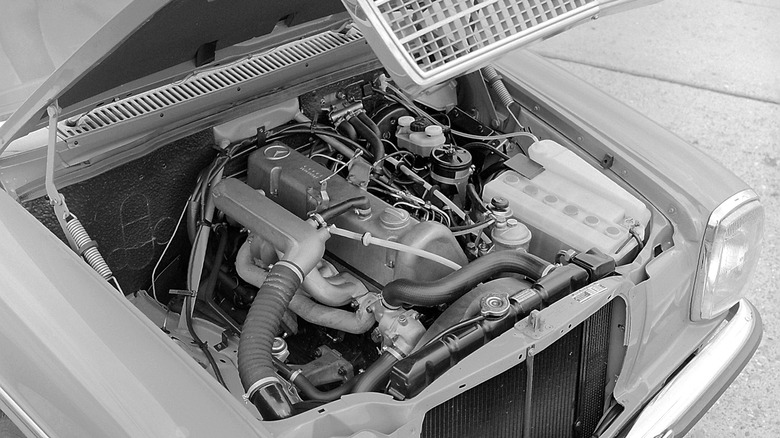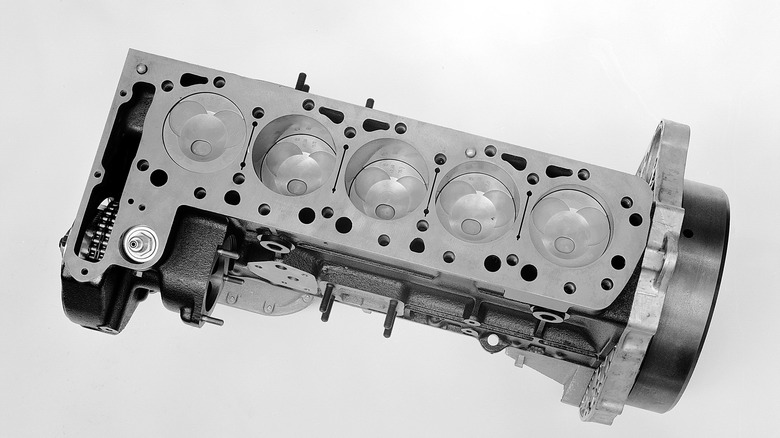Here's What Makes The Mercedes-Benz OM617 Diesel Engine So Special
If there was a hall of fame for important engines, the Chevy Small Block would likely be the first engine inducted. Chrysler would have the HEMI engine and Slant-6. Ford could enter the 5.0 engine and 300 inline-6 and no one would question it. Toyota's 2JZ motor found in the Supra and in countless other builds would deserve a spot as well.
All of those engines have some factor that makes it transcend past the mundane powerplant most people are used to and reach star status among gearheads. The Chevy Small Block is infinitely customizable, the Chrysler HEMI can throw down huge amounts of power, the Ford 5.0 powered the Mustang for years, and the Toyota 2JZ is a tuner's dream.
There are dozens of other engines that would be at home in the proverbial hall of fame. However, one specific engine arguably deserves consideration over all others: the OM617 diesel from Mercedes-Benz.
From station wagons to speed records
The humble diesel motor earned some unique superlatives when it first went on the European market in 1974. It was the first ever five-cylinder engine ever used in a passenger car, and despite starting with only 80 horsepower at the time, it was also the most powerful engine (via Mercedes-Benz). A turbocharged variant showed up Stateside in 1977, according to Hemmings, and became a hit almost immediately.
The OM617 found its way into American gearheads hearts in the form of the Mercedes 300 D sedan and the 300 TD station wagon available from 1978 to 1986. The engine was also used in a number of limousines, coupes, and family haulers overseas. All told, Mercedes made over 600,000 cars with the OM617 as its powerplant during its production life, and it was exported to markets all over the world. The engine is revered for its reliability like the Ford 300 and its ubiquity like the Chevy Small Block.
Media outlets in the engine's native Germany absolutely adored the engine for its smoothness and ability to keep up with traffic. American reviews loved the fuel efficiency and relative power it provided. Plus, the bells, whistles, and luxury of a Mercedes doesn't hurt (via MotorWeek).
In your average station wagon, the engine topped out at barely 125 horsepower — it was not a speed demon by any means. However, the engine was capable of much more. An OM617 equipped Mercedes C-111 test car was able to set a diesel-powered world record. It reached just over 203 miles per hour on the Nardo Ring test track in Italy in 1978. Overall, the diesel-powered C-111 broke 13 different diesel-centric world records (via Mercedes-Benz).

